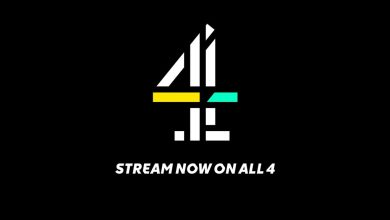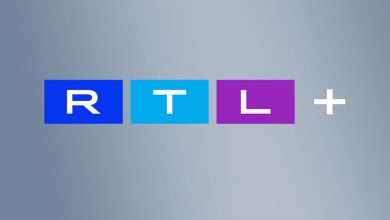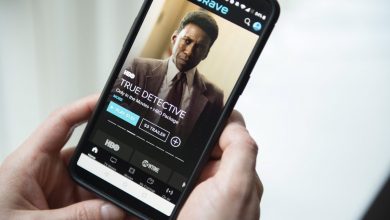Advantages and Disadvantages of Using a VPN
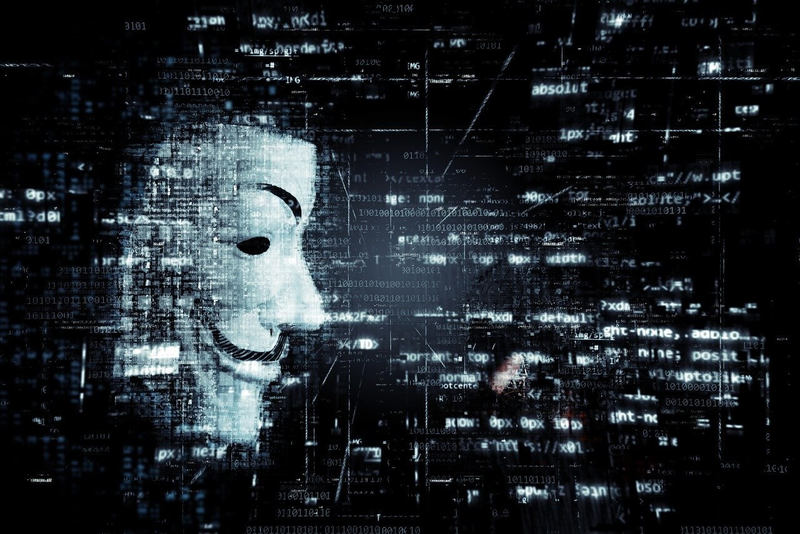

- Hide your IP address
- Data encryption
- Potential data leaks
- Software vulnerabilities
Using a virtual private network (VPN) when you go online is becoming a norm as hackers and government agencies are lurking in the shadows. A VPN service comes in handy on many occasions. It can hide your location by concealing your IP address and help you bypass geo-restrictions.
Industry reports from Statista show that about 17% of Internet users in both Europe and North America use VPNs. But it’s the Asia-Pacific region that leads the way with almost 30% of users connecting to the Internet through a VPN service. The widespread use of VPNs in Asia is due to the online restrictions that countries like China impose. Meanwhile, in Europe and North America, Internet access is unlimited, which means that people mostly connect to a VPN for security and privacy.
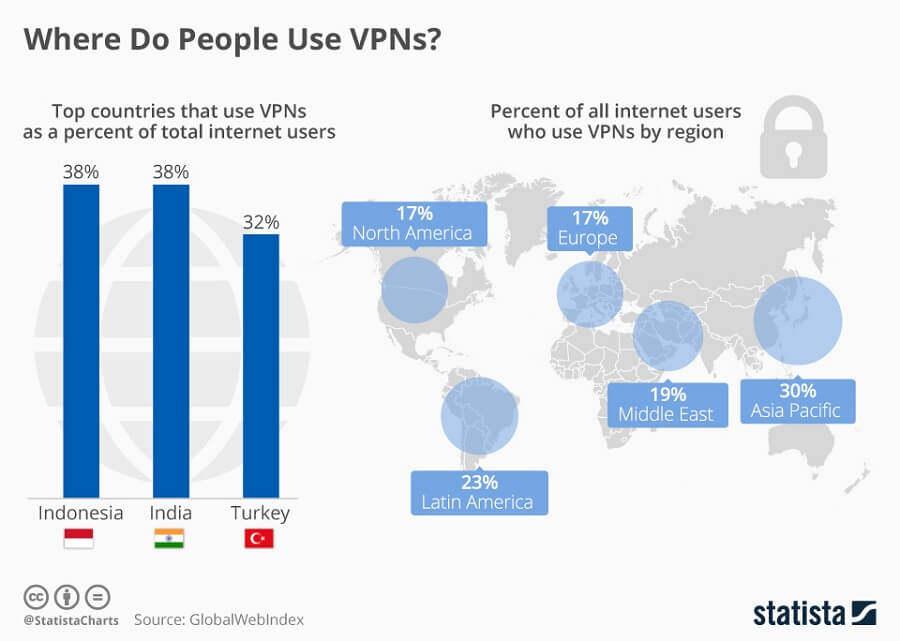

While VPN services offer the benefits of greater online privacy and data encryption, they also have some disadvantages. And we will explore both below.
Pros of Using VPNs
VPNs reroute your traffic through one of their private servers, then change your IP address and encrypt your traffic. That makes them excellent tools for privacy and unlimited Internet access.
Here are some of the reasons why you should use a VPN:
Hide Your IP Address
As I mentioned before, a VPN service replaces your real IP address with a different one that matches your VPN server’s location. In other words, you’ll get an American IP address when you connect to a VPN server from the US. As a result, websites won’t be able to track your actual location.
You can benefit from this in terms of privacy and bypassing geo-blocks. For example, Hulu and Netflix‘s US catalog are unavailable outside the USA. And both streaming platforms can track your location through your IP address. But if you connect to a VPN server from the United States, Hulu and Netflix will think that you are inside the country thanks to your new American IP address. Therefore, they will allow you to stream their content.
And it’s the same process with web services from different countries. To unblock BBC iPlayer or ITV Hub, you just need to connect to a VPN server from the UK.
Military-grade Encryption
Virtual private networks also encrypt all the data that your device sends or receives. Premium brands use the Advanced Encryption Standard with 256-bit keys, better known as AES-256. It is the most secure encryption on the market as it offers trillions of possible combinations
AES-256 will prevent anyone from monitoring your online activities, even your Internet service provider. Government agencies and hackers also won’t be able to track how you spend your time online.
Safe P2P File-sharing
VPNs enable you to take the utmost advantage of peer-to-peer servers and torrenting as a whole. They are ideal tools for file-sharing activities as they protect you from copyright holders by hiding your IP address and encrypting your traffic. That way, no one can find out which websites you visit or the files you download. They also won’t be able to track or identify you.
Furthermore, a lot of ISPs block torrent websites to reduce data consumption. But with a VPN, they won’t know your web destinations or the files you’re sharing.
ISP Throttling
Have you ever noticed that your connection speed suddenly drops after you spend a lot of time on YouTube or Netflix? Well, that’s your ISP deliberately slowing your Internet speed down to minimize bandwidth congestion. As a result, the videos you’re trying to watch buffer and have trouble loading.
But you can avoid all that when you connect to a VPN server. That’s because your ISP will have no idea what you’re doing online. Therefore, you can watch your favorite movies/series or download music as much as you like without any interruptions.
Cheap Price for Online Security and Privacy
Finally, purchasing a premium VPN subscription is quite affordable, especially if you commit to long-term plans. Monthly packages might seem a bit expensive, but there is excellent value in annual subscriptions as they allow you to save between 50% and 80%. Besides, you can’t put a price on your online security and privacy.
There are several free VPNs on the market, as well. However, I don’t recommend that you use them because they can’t provide the above features. For example, most reputable streaming services blacklist most VPN IP addresses. That is why it’s rare to find a free VPN that can unblock Netflix or BBC iPlayer.
Furthermore, their servers are small in number and often overcrowded, which means that they offer slow speeds. But the most dangerous thing about them is the lack of privacy and security. Most feeless VPNs collect sensitive data and sell it to third parties. Some of them don’t offer encryption, while others may contain malware.
Cons of Using VPNs
While VPNs have plenty of benefits, there are a couple of downsides to their usage. However, most of the disadvantages are associated with free VPNs, not the elite brands.
VPNs Don’t Replace Other Security Tools and Protocols
Virtual private networks are not all-in-one security solutions. More specifically, a VPN cannot replace an antivirus software or a dependable firewall, for example. Furthermore, VPNs can encrypt your connection but cannot take the place of a weak, hackable password. Hence, you should use a VPN as part of an extensive cybersecurity list to protect your online data, accounts, and traffic.
Data Leaks
The most dangerous VPN risk is data leakage. Most of them can leak your data one way or another, while advanced hackers, as well as government agencies, have tools that can penetrate VPN connections. Moreover, some providers keep minimal data about you while others actually track your browsing history. In the past, several VPN services were caught selling their users’ online activities to third parties.
However, all these violations relate to free VPN brands. Reputable providers offer a kill switch and DNS leak protection to ensure your data remains intact. They will terminate the Internet connection from your device in case the VPN connection drops.
Software Vulnerabilities and Backdoors
VPN software can be vulnerable to attacks, just like any other software. Hackers are actively seeking to exploit these frailties to control servers, and subsequently, the data that travels through them. Furthermore, some VPN developers install backdoors for government agencies so that they can bypass encryption and other security protocols and access user information.
Therefore, you should always update your VPN app to patch up any potential weakness in the system.
Legal Issues
If you’re an advanced VPN user, then I’m sure you know that not all services are the same. You must always register for a premium VPN service with proven security features and unblocking capabilities. But in some countries, using a VPN is illegal. As a result, you might face legal action if you get caught. Few governments have passed laws that prohibit the use of VPNs, but several streaming platforms ban some VPN IP addresses.
Difficult Configuration on Certain Devices
Virtual private networks are compatible with the majority of operating systems. They have dedicated apps for iOS, Android, PC, and Mac. Some providers also support Kindle Fire and Linux devices. However, you cannot automatically install them on routers, gaming consoles, and Smart TVs. Instead, you have to manually set them up, which can be a bit difficult for newbies.
Still, reputable VPNs have setup guides and videos on their websites to help users configure the service on Smart TVs, PS4, Xbox, and routers. If you set up a VPN on your router, any device that connects to your Wi-Fi connection will benefit from VPN protection.
Unblocking Capabilities
The fact that each VPN slows down your Internet connection a little is not really a concern. What you should worry about is that no VPN offers 100% anonymity or bypasses all geo-restrictions, especially free providers.
As I mentioned earlier, a lot of streaming platforms like Netflix, Hulu, and BBC iPlayer have blacklisted VPN IP addresses. That means they can detect that you’re using a VPN to change your IP and access their content. Elite providers still work with the most in-demand online video services, but you must choose the right one.
Concluding Words
Selecting a VPN with a proven track record is your first step towards online privacy and anonymity. Nonetheless, even the best VPN services available have some inherent disadvantages that are hard to overcome or control. Therefore, keep that in mind when using a VPN service as it might lead to account bans, legal actions, and the loss of your sensitive data if you don’t choose well.
Do you think it’s better to use a VPN when you go online? Share your thoughts in the box below.

